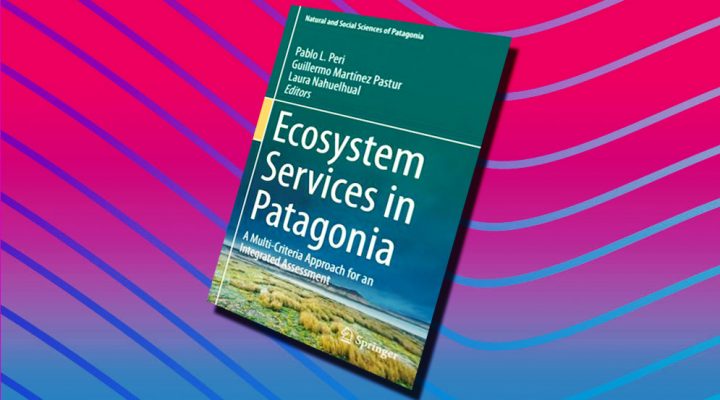SCIENCE OUTREACH
Ecosystem Services in Patagonia
It’s the name of a new book about a study conducted by researchers of CONICET and Fundacion Bariloche. The objective is to make a comprehensive evaluation on the use of the resources in the Argentine and Chilean Patagonia, under a multiple criteria approach.
Stretched between Chile and Argentina, Patagonia is home to some of the best-preserved wilderness of the planet. Its natural grasslands comprise almost 30 percent of America while its forests play a vital role in the regulation of water, influence the capture and storage of carbon and are widely known for their eco-tourist value. Nevertheless, some of these ecosystem services are often ignored in economic markets, government policies and land management practices. In this context, Pablo Luis Peri and Guillermo Martínez Pastur, CONICET researchers, and Laura Nahuelhual, researcher of the Fundación Bariloche and the Centro de Investigación: Dinámica de Ecosistemas Marinos de Altas Latitudes (IDEAL) of Chile led the edition of ‘Ecosystem services in Patagonia.’ From natural and social sciences, the book analyzes the way in which Chilean and Argentine societies benefit and value the different natural resources of the region.
Organized into twenty-two chapters, the book contains the research work of Argentine and Chilean scientists whose objective is to provide tools for decision makers. “We want the book to be a contribution to management, so each chapter has a strong application in the field,” affirms Guillermo Martínez Pastur, CONICET principal researcher at the Centro Austral de Investigaciones Científicas (CADIC, CONICET).
Martínez Pastur warns about the complexity of the concept of ecosystem services “because its approach is from a human perspective and the use they can make of the natural resources.” For the researcher, different people take these services for their provision, regulation, support and culture, varying the perspectives according to the social role of each one.
The authors link cultural services with the spiritual perceptions that people may have as regards the natural ecosystems. For this reason, the publication does not exclude the worldviews:”There are worldviews about the natural ecosystems that can often change the use that, afterwards, is made of them,” explains Martínez Pastur. Besides, he adds “The fact that plantations are considered as better alternatives than native forests or that we should be a cattle-raising country are precisely worldviews installed in our society.”
Due to the wide range of resources that can be taken from the natural ecosystems, the researchers sought to address the problem from a comprehensive perspective: “We not only quantified and mapped the different ecosystem services, but also took a step further and sought to transform the diagnoses into concrete management and feasible to implement,” Martínez Pastur states.
Thus, the book that transcends borders shows the empty spaces that exist, both in the knowledge and in the current use of natural resources, with the objective of helping to reorient the management and legislation of the coming decades. “This book may generate the bases for the creation of a binational agenda on the subject,” the scientist concludes.
By Yasmín Noel Daus
https://doi.org/10.1007/978-3-030-69166-0
About the study
Pastur, Guillermo Martínez. Principal researcher. CADIC (CONICET)
Peri, Pablo Luis. Independent researcher. CIT SANTA CRUZ (CONICET – UNPA – UTN)
Nahuelhual, Laura. IDEAL (Chile) and Fundación Bariloche
